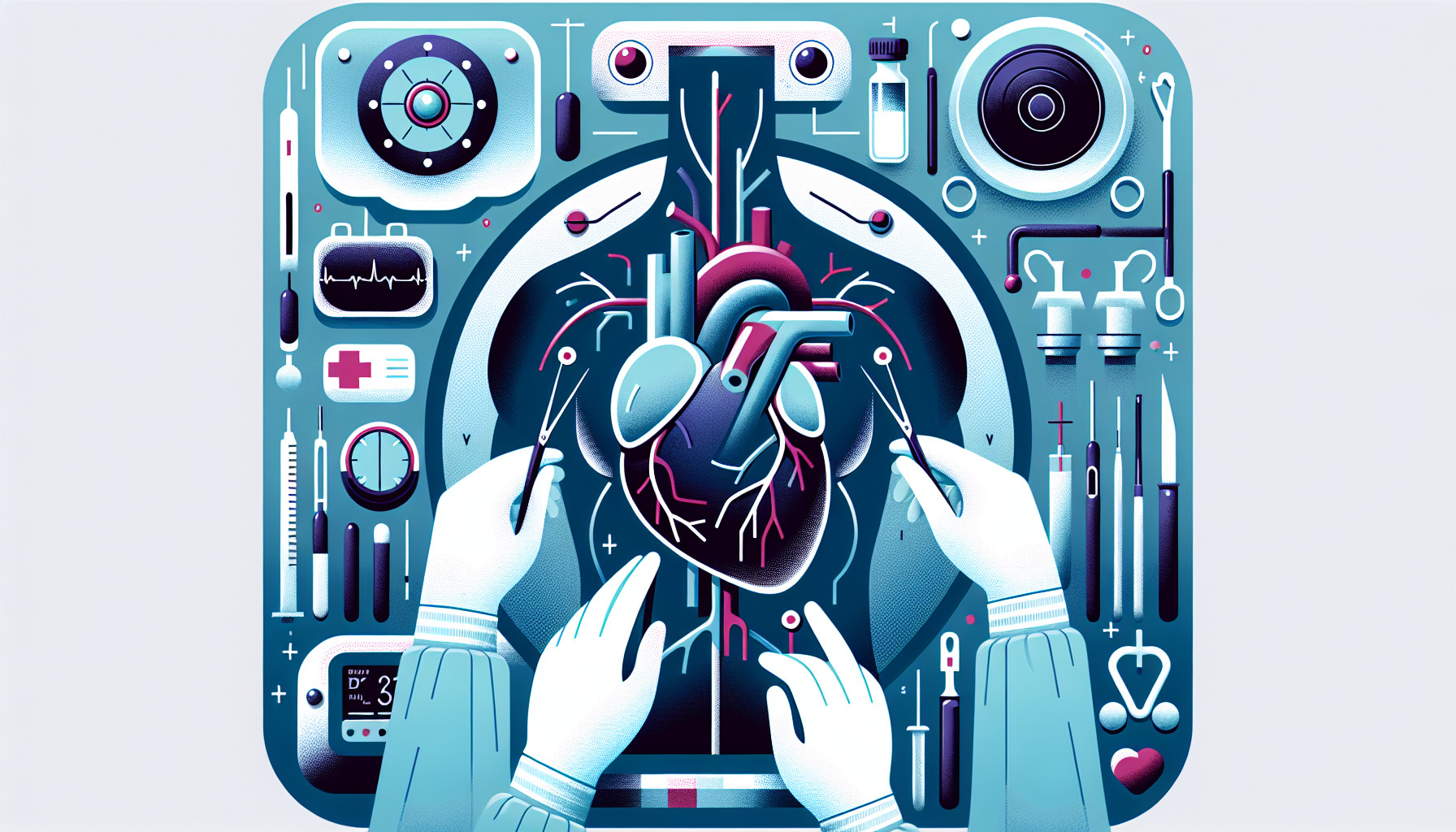Our Summary
This research paper is a review of an approach to heart surgery known as Off-pump Coronary Artery Bypass Grafting (OPCAB). This method became popular again from the 1980s to 2000s as techniques and instruments improved. However, there are still questions about the effectiveness of the grafts used in this method and how long patients who undergo this procedure survive. The paper aims to explore how relevant and useful OPCAB is in current medical practice.
FAQs
- What is Off-pump Coronary Artery Bypass Grafting (OPCAB)?
- What concerns exist about graft patency and long-term survival of OPCAB patients?
- How has the technique and instrumentation of OPCAB improved over time?
Doctor’s Tip
One helpful tip a doctor might tell a patient about coronary artery bypass is to follow a healthy lifestyle post-surgery, including maintaining a balanced diet, regular exercise, and avoiding habits such as smoking. It is also important to attend follow-up appointments with your healthcare provider to monitor your progress and make any necessary adjustments to your treatment plan.
Suitable For
Patients who are typically recommended for coronary artery bypass grafting (CABG) include those with significant blockages in their coronary arteries that are causing symptoms such as chest pain (angina), shortness of breath, or fatigue. These blockages may be causing decreased blood flow to the heart muscle, which can lead to a heart attack or other serious heart problems.
In particular, patients with left main coronary artery disease, severe triple-vessel disease, or significant blockages in the proximal (beginning) portion of the coronary arteries are often candidates for CABG. Patients who have not responded well to medical therapy or other interventions, such as angioplasty with stenting, may also be recommended for CABG.
Additionally, patients with certain risk factors for complications during or after surgery, such as diabetes, kidney disease, or advanced age, may be considered for CABG over other treatment options. Ultimately, the decision to recommend CABG for a patient is based on a thorough evaluation of their individual medical history, risk factors, and current symptoms.
Timeline
Before Coronary Artery Bypass Surgery:
- Patient experiences symptoms of coronary artery disease such as chest pain, shortness of breath, and fatigue.
- Patient undergoes diagnostic tests such as coronary angiography to confirm the presence and severity of blockages in the coronary arteries.
- Patient receives medical treatment to manage symptoms and reduce the risk of complications.
During Coronary Artery Bypass Surgery:
- Patient is put under general anesthesia.
- Surgeon makes an incision in the chest and connects the patient to a heart-lung bypass machine.
- Surgeon takes a healthy blood vessel from another part of the body and attaches it to the blocked coronary artery to create a new pathway for blood flow.
- Surgery typically takes several hours to complete.
After Coronary Artery Bypass Surgery:
- Patient is monitored closely in the intensive care unit for a period of time.
- Patient may experience pain, swelling, and discomfort at the incision site.
- Patient undergoes cardiac rehabilitation to regain strength and endurance.
- Patient is prescribed medications to manage symptoms, prevent complications, and promote healing.
- Patient is advised to make lifestyle changes such as adopting a heart-healthy diet, exercising regularly, and quitting smoking to reduce the risk of future heart problems.
What to Ask Your Doctor
- What is the expected outcome of the coronary artery bypass surgery?
- How long will the recovery process take and what can I expect during this time?
- What are the potential risks and complications associated with the surgery?
- How long can I expect the bypass grafts to remain open and functioning properly?
- Will I need to make any lifestyle changes or take medication after the surgery?
- How often will I need to follow up with you after the surgery?
- Will I need any additional tests or procedures in the future to monitor my heart health?
- Are there any alternative treatment options to consider besides coronary artery bypass surgery?
- What can I do to improve my chances of a successful outcome from the surgery?
- How will the surgery impact my overall quality of life in the long term?
Reference
Authors: Ofoegbu CKP, Manganyi RM. Journal: Curr Cardiol Rev. 2022;18(2):e271021197431. doi: 10.2174/1573403X17666211027141043. PMID: 34711166
